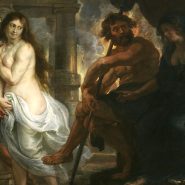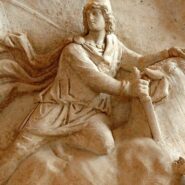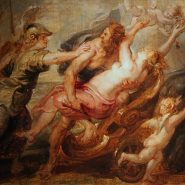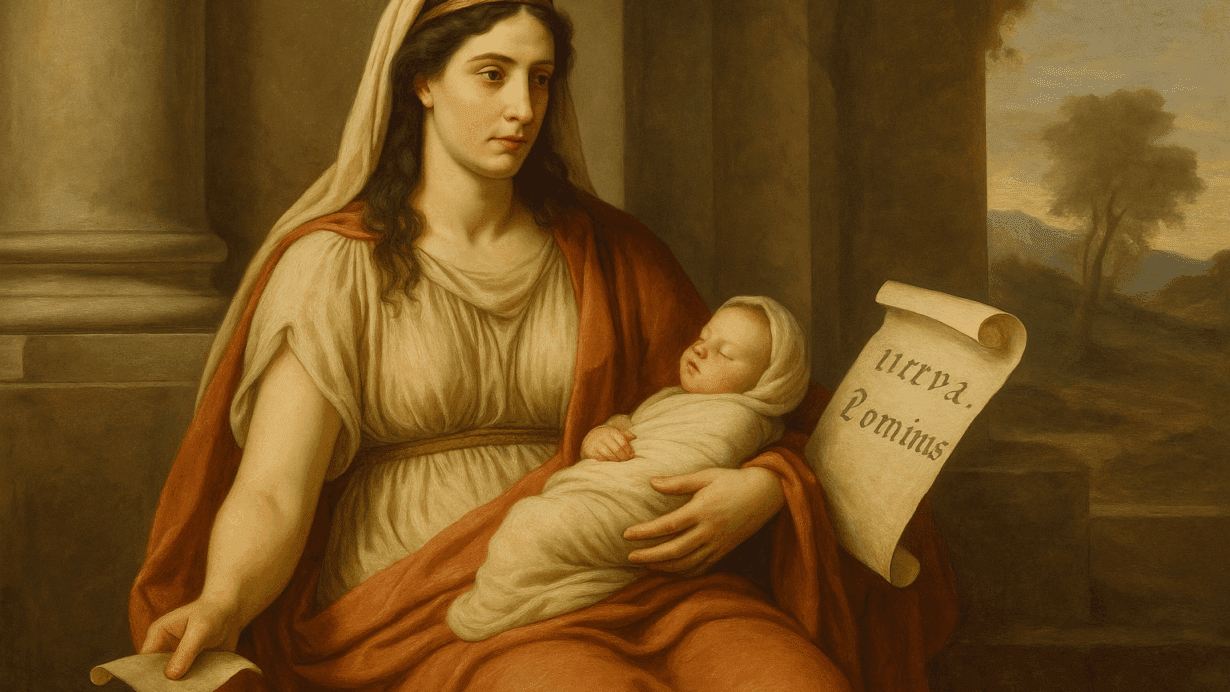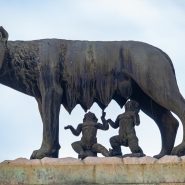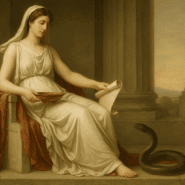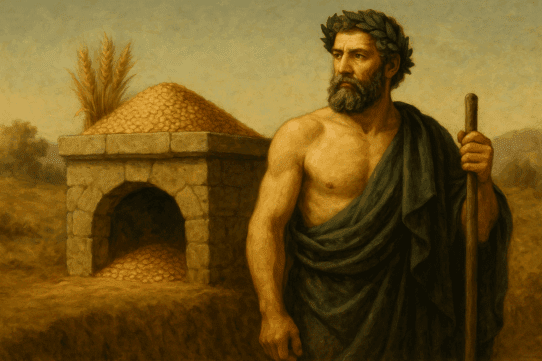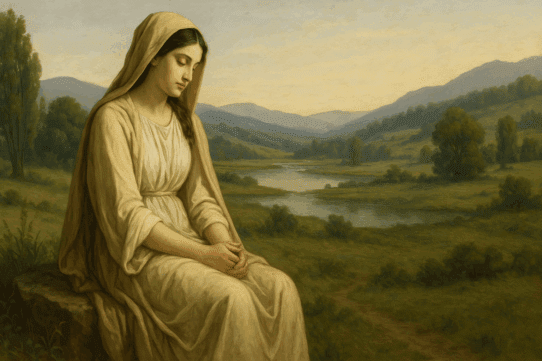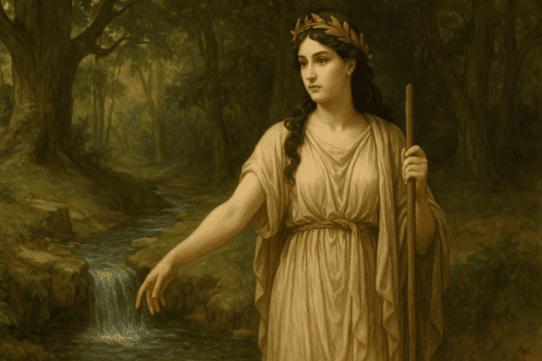Carmenta was one of the most revered yet quietly powerful goddesses in early Roman religion. Known for her prophetic insight and her guardianship over childbirth, she stood at the crossroads between fate and new beginnings.
To the Romans, Carmenta was not merely a divine figure associated with mothers and infants. She was a living embodiment of foresight, a guide whose visions shaped destinies and whose protective presence stood watch over Rome’s future generations.
The Birth of a Prophetic Goddess
Carmenta’s story begins long before Rome rose to prominence. Ancient tradition held that she was one of the Camenae, a group of prophetic nymphs who presided over springs, knowledge, and inspiration. Her original name was Nicostrate, but she eventually came to be known as Carmenta, derived from carmen, meaning song, prophecy, or spell. This linguistic root reflected her deep connection with divination, sacred chants, and the spoken power that shaped the unseen world.
According to mythology, Carmenta possessed the extraordinary ability to foresee the future and to shape language itself. Some legends even credit her with inspiring early Roman writing systems. Her prophecies were not wild or uncontrolled. They were measured, ritualistic, and often delivered in rhythmic verses that carried divine authority.
Carmenta and Evander: The Journey to Italy
Carmenta’s mythology is closely tied to her son Evander, the Arcadian hero who led a colony from Greece to the banks of the Tiber. Guided by Carmenta’s visions, Evander settled on the future site of Rome centuries before Romulus and Remus were born.
It was Carmenta who foresaw the greatness of the land. She is said to have predicted that the place where they settled would become the heart of a powerful empire. Her guidance shaped Evander’s decisions, allowing him to bring Greek culture, arts, and laws into early Italian society. This blending of cultures became a foundation for the future Roman identity.
Protector of Mothers and New Life
While prophecy defined one aspect of her divinity, Carmenta was equally venerated as a guardian of pregnancy and childbirth. Roman mothers prayed to her for safe deliveries, while midwives invoked her name for guidance. Her sanctuaries were regarded as safe spaces for women, and her rites often emphasized protection, nurturing, and the sacredness of new life.
The Carmentalia, a two-day festival held on January 11 and 15, honored Carmenta with special ceremonies performed primarily by women. The rituals were conducted at her temple near the Porta Carmentalis, where priestesses called Carmentes chanted hymns and offered sacrifices. One of the unique aspects of the festival was the ban on leather or animal hides within the temple grounds. This prohibition highlighted the sanctity of life and symbolized Carmenta’s ties to birth, motherhood, and natural purity.
A Symbol of Transformation and Foresight
Carmenta’s dual dominion over prophecy and childbirth illustrates her role as a goddess of transitions. She presided over the moment when the future breaks into the present, whether through visions or the arrival of new life. Her followers viewed her as a guide who illuminated uncertain paths, offering direction during times of change.
Her influence extended beyond individual families. Through her prophecies and her connection to Evander, Carmenta helped shape the mythic foundations of Rome itself. She represented wisdom in moments of vulnerability and the promise of what might come when one listens to the voice of destiny.
Carmenta in Roman Identity
Although not as widely recognized today as deities like Juno or Venus, Carmenta held an essential place in early Roman spirituality. Her festival was one of the oldest in Rome, her temple one of the most respected, and her role one of deep cultural meaning. She served as a divine bridge between past and future, mother and child, vision and reality.
For Romans seeking guidance, protection, or understanding of life’s transitions, Carmenta was a steadfast presence. She reminded them that fate was not random but could be understood through divine insight and reverence for the cycles of life.
